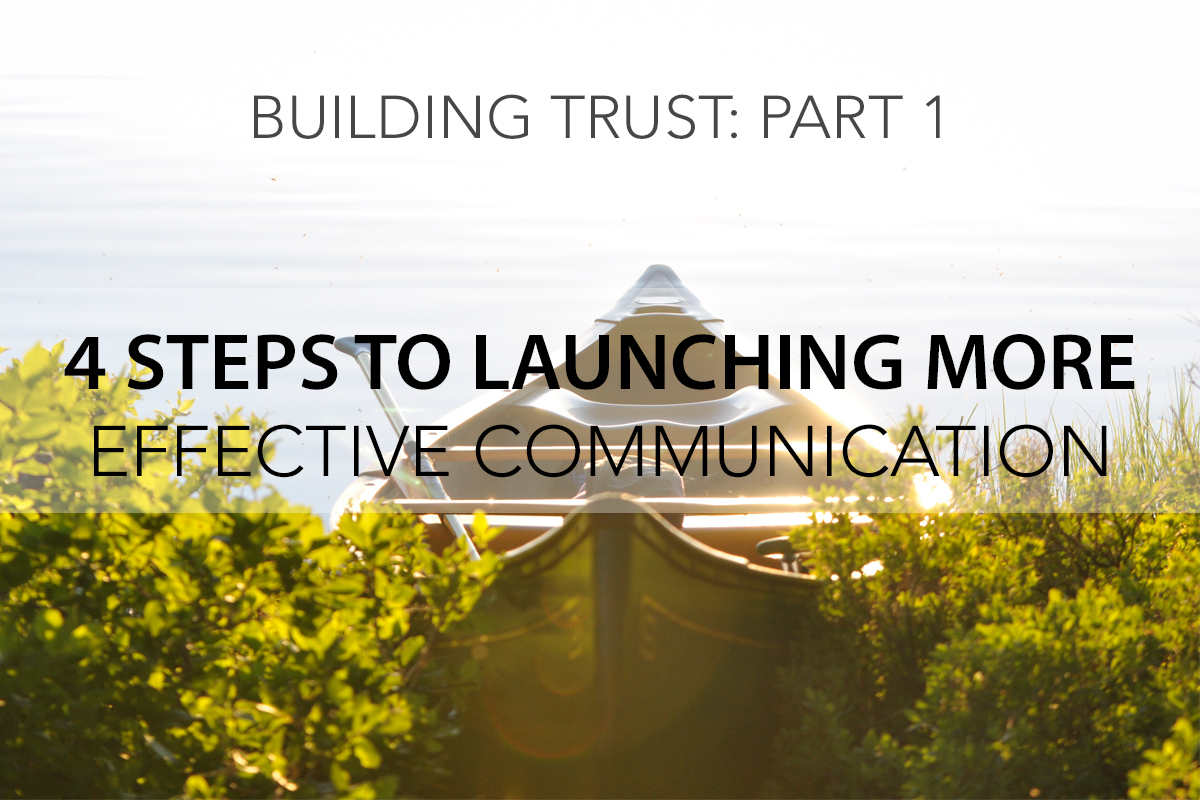In managing a team, it's important that you build good team leadership skills, and one ways to do that is to learn to read the behaviors of your team members. Humans are very complex! Commingling emotion, personality, temperament, intellect, and the motivations of the heart can make understanding what someone really wants hard to decipher. Having finely honed emotional intelligence (EQ) skills allows a leader to read the source of frustration in others and give them what they actually need in order to once again be happily engaged and productive. The following examples show how leaders can help ease tension by paying close attention to how their employees are acting.
Read moreWarning Signs that You Are Not Delegating
7 Actions of Leaders with High EQ
Leaders who consistently display emotional maturity are more likely to have a high performing and loyal team following them. But being an emotionally intelligent (EQ) leader takes a lot of hard work over time. EQ skills are best developed by focusing on one or two at a time and practicing them until they start to come naturally.
Read moreHow to Boost Your Team's Performance
Researchers in behavioral neuroscience have made some stunning discoveries about how our brain cells actually create a chemical connection with others. This is measurably true between leaders and their followers. Simply stated, a leader’s mood drives the mood of the team. Leaders who consistently manifest emotional maturity (high emotional intelligence) will likely have a high performing and loyal team following them.
Read more7 Steps to Getting your Leadership Back on Track
Most people don’t like to think about their shortcomings. However, none of us are perfect. Here we have identified the top 14 bad behaviors that harm a leader’s effectiveness and influence. Do you see traces of any of these in your life?
Read moreHow Healthy is Your Board?
When you go to the doctor or the emergency room, one of the first things they do is take your vital signs. These signs are called “vital” for a reason. When any one of the vital signs, like blood pressure or temperature, is far out of the acceptable range, you know you have a problem that needs to be dealt with. The same is true for boards; you need to regularly check the vital signs. The following lists include vital signs related to healthy and unhealthy boards.
Read more7 Issues Stopping Leaders from Delegating
If you ever feel work hours are far too many, emails and texts overwhelming, problems to solve never ending, and projects to complete ever growing, you are drowning! One fascinating thing about “drowning” in life is that it is often an element essential to life, just like water, that is killing you! Water is a good thing, but an unmanaged, excessive amount of it can literally bury you.
Read moreBuilding Trust Part 6: Consistency
People tend to trust people who show predictability or consistency. When someone is erratic or unpredictable, we are less likely to trust him or her. For example, if a supervisor is friendly and joking around one day, then the next day is angry and withdrawn, and another day is serious and reserved, people will develop a sense of uncertainty about this leader and begin to question their consistency.
Read moreBuilding Trust Part 5: Connectedness
Relationships play a vital role in building and maintaining trust. When people are relationally connected to one another, they have a greater opportunity to know what is happening in the lives of others, to manifest care and concern when needs are discovered, and to keep potential for conflict and misunderstanding to a minimum.
Read moreBuilding Trust Part 3: Concern
People tend to have confidence and trust in those who they perceive show authentic concern for them. In Philippians 2, Paul explains how we should imitate Christ in our actions and attitudes, including demonstrating concern for others.
Read moreBuilding Trust Part 2: Character
Character refers to a person’s intrinsic value system and external actions. Areas often associated with character are honesty, fairness, and hard work. Character is the second value we are focusing on to build trust because the way others perceive your character will effect how much they trust you. Below are four ways to help you form good character and earn the trust and respect of those around you.
Read moreBuilding Trust Part 1: Communication
The 6 Trust Gauges to the right graphically describe how trust works among people and in organizations. All people have expectations of themselves and others, but they may not be understood, agreed upon, or fair. These expectations fall into one or more of the following categories: communication, character, concern, competence, connectedness, and consistency. Trust is built when we prove reliable by meeting the expectations others have of us in these six areas.
Read more10 Steps to Rebuild Broken Trust
When trust is broken, either for reasons of unethical behavior or due to differing expectations, the results are disappointment, hurt, and anger. It is very easy to respond by not wanting to trust again or invest the time and energy necessary to rebuild the lost trust. However, this only results in embedding unhealthy feelings and behaviors into the organization’s culture. To get your organization healthy again, it's important to begin rebuilding trust as soon as possible. Easier said then done. Here are 10 steps to get you started.
Read more5 Things Your Boss Needs from You
If expectations aren't clear, sometimes it is really hard to know what your boss wants. But even if your leader is a great communicator, there are still some unspoken things that he/she expects from you.
Read more7 Key Factors to Keeping Your Credibility Bank Full
Bankruptcy. It’s a sad trend in today's’ culture, and it is growing at an alarming rate. We usually equate it with financial failure, but there are other types of bankruptcy. Financial fortune can be reversed, but once our credibility has been lost, it becomes difficult, if not impossible, to regain.
Read more3 Ways to Not Get Burnt by Expectations
All people have expectations of themselves and others. The expectations that are held may not be understood, agreed upon, or even fair.
These expectations fall into one or more of the following six categories: communication, character, concern, competence, connectedness, and consistency. Trust is built when we prove reliable by meeting the expectations others have of us in these six areas, but we can't gain someone's trust if we don't know what they expect. It's a viscous cycle.
Read moreWinter
It's dark when I get up and when I get home. Bitter cold, ice, and snow make regular appearances. The fire pit, grill and fountain are dormant along with plants that were once green and flowering. It's winter. I have stopped questioning people who go south for the winter. I now get it! In his book Spiritual Rhythm, Author Mark Buchanan talks about the role of each season in our spiritual lives.
Read moreThreats or Affirmation?
Threat of significant consequences for not meeting requested performance standards is all too often the primary motivator used by leaders.
Read moreDisillusionment. Discouragement. Despair.
Disillusionment. Discouragement. Despair. All three words have a few things in common.
Read moreThe Hero & His Bag Of Tricks
Did you ever notice how, many people when taking on the role of the new leader of an organization, sometimes try too hard to show they are the boss?
Read more




















